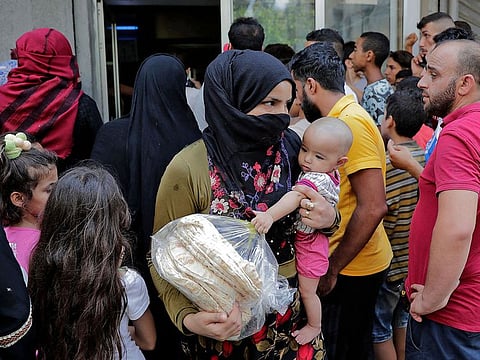Corruption, sectarianism mars Lebanon
Fuel subsidy crisis reflects brings to fore the issues plague the country

Lebanon’s troubles are expected to get much worse as the country’s Central Bank decided unilaterally to end fuel subsidies in an attempt to protect the country’s foreign currency reserves, but the move will certainly add additional financial burden on the Lebanese people, with half of them already living under the poverty line.
The Lebanese government on Thursday rejected the Central Bank’s decision, insisting that the current subsidised prices “must not change and subsidies must continue until measures are in place to help the poor.”
Fuel subsidies cost the country at least $3 billion last year, according to the Central Bank’s powerful governor Riad Salameh. However, the loss of fuel subsidies would open a new phase in Lebanon’s financial crisis in which the national currency, the Lira, has already lost 90 per cent of its value.
Inflation and unemployment rates have skyrocketed, essential food items and medicine has virtually disappeared while severe shortage of fuel and electricity has led to sporadic protests.
The latest crisis comes as Lebanon continues to be without a functioning government as the Prime Minster designate Najib Mikati is yet to form a government. He was picked to lead a new cabinet following the withdrawal of former Prime Minster Saad Al Hariri to form a government after a year of deliberation and futile negotiations with President Michel Aoun and the main political parties over their shares of ministerial portfolios.
A caretake government led by Hassan Diab, which had resigned in August 2020, days after the catastrophic explosion in Beirut port, has shown no interest in taking any serious initiative to ease the economic crisis, described recently by the World Bank as one of the world’s worse three economic crisis in the last 150 years!
Diab called Salameh’s move to end the fuel subsidies as “unacceptable” but offered no alternative solution, while the Central Bank’s chief says his decision was the final resort to protect Lebanon’s foreign currency reserves which have been increasingly diminishing in the last two years due to subsidy policy and the continuing economic crisis because of political deadlock and coronavirus impact, which affected Lebanon’s main revenue source, travel and tourism.
In reality, the subsidies crisis reflects the deeper economic, political and social predicament in the country that was once described as the Switzerland of the Middle East.
Lebanon’s root problem is the failure of its political class to rise above their selfish political and financial interests (coupled of course by rife corruption and tribal and sectarian loyalties) to offer a viable remedy to a misfunctioning system.
Lebanon’s priority today must be the immediate formation of a government that should initiate a national dialogue to fix the system, by ending corruption, enforcing the rule of law and accountability and replacing the current sectarian power sharing system with one that favours competence and national loyalty.
Sign up for the Daily Briefing
Get the latest news and updates straight to your inbox


